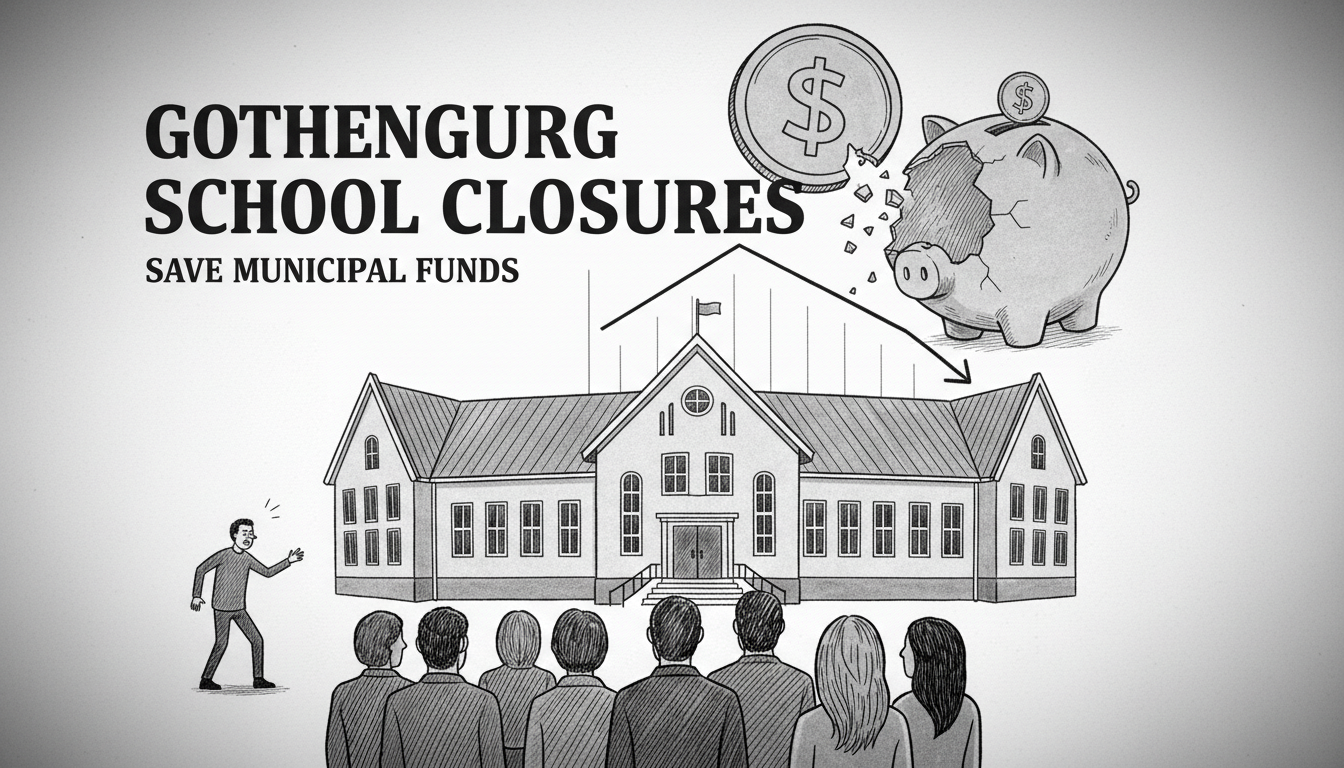Gothenburg's education administration has proposed closing five primary schools across the city. The department recently published its investigation detailing potential cost savings from the closures. Opposition politicians immediately criticized the plan as poorly conceived.
Axel Darvik, a Liberal Party council member in opposition, called the proposal "very ill-considered" in his response. The closures would affect schools in various neighborhoods throughout Sweden's second-largest city.
This move reflects broader municipal budget pressures facing Swedish cities. Gothenburg, like many urban centers, struggles with rising costs and fixed education budgets. School closures often generate intense public debate in Sweden, where education quality remains a top priority for families.
The proposed Gothenburg school closures follow similar patterns seen in other Swedish municipalities. Malmö and Stockholm have both faced school consolidation debates in recent years. Swedish municipalities bear primary responsibility for education funding, creating constant tension between quality maintenance and fiscal responsibility.
International readers should understand that Swedish schools operate differently than many other systems. Municipal governments control most educational decisions, not national authorities. This decentralization means budget pressures hit local schools directly when cities face financial challenges.
What happens next? The proposal will undergo public consultation and political debate. Parents and teachers will likely organize opposition campaigns. Swedish school closure processes typically involve several months of discussion before final decisions.
The economic reality is clear: Swedish municipalities face structural budget deficits. Gothenburg's attempt to save money through school consolidation shows how cities balance educational quality against financial constraints. This situation mirrors challenges across Nordic welfare states maintaining public services amid rising costs.
Why does this matter beyond Gothenburg? It demonstrates the pressure points in Scandinavia's famous welfare model. When even prosperous cities like Gothenburg consider school closures, it signals broader systemic challenges. International observers watch these developments closely for insights into Nordic social sustainability.
The coming months will reveal whether Gothenburg proceeds with these specific closures or finds alternative savings. Either way, the debate highlights difficult choices facing Swedish public education.

